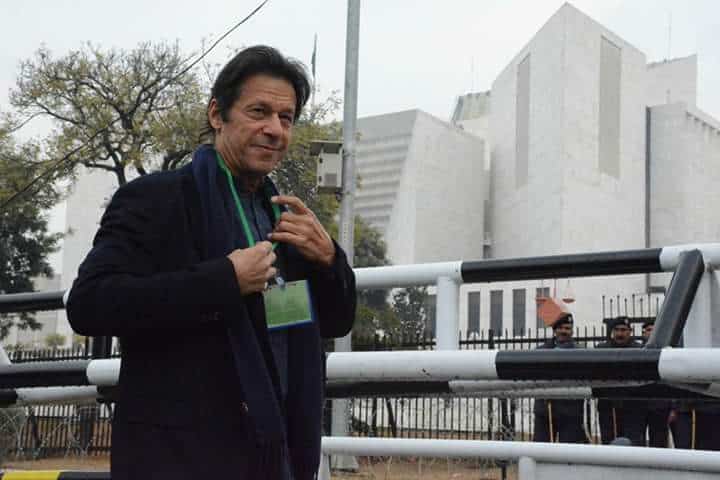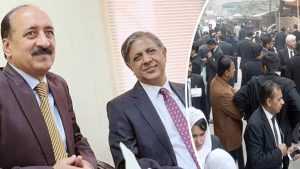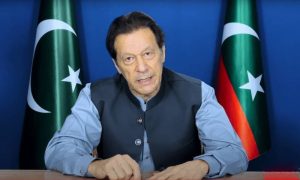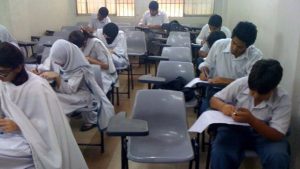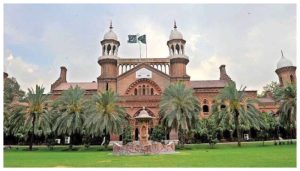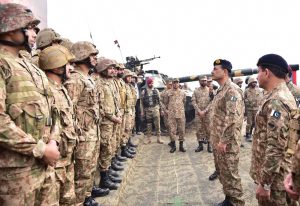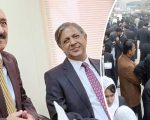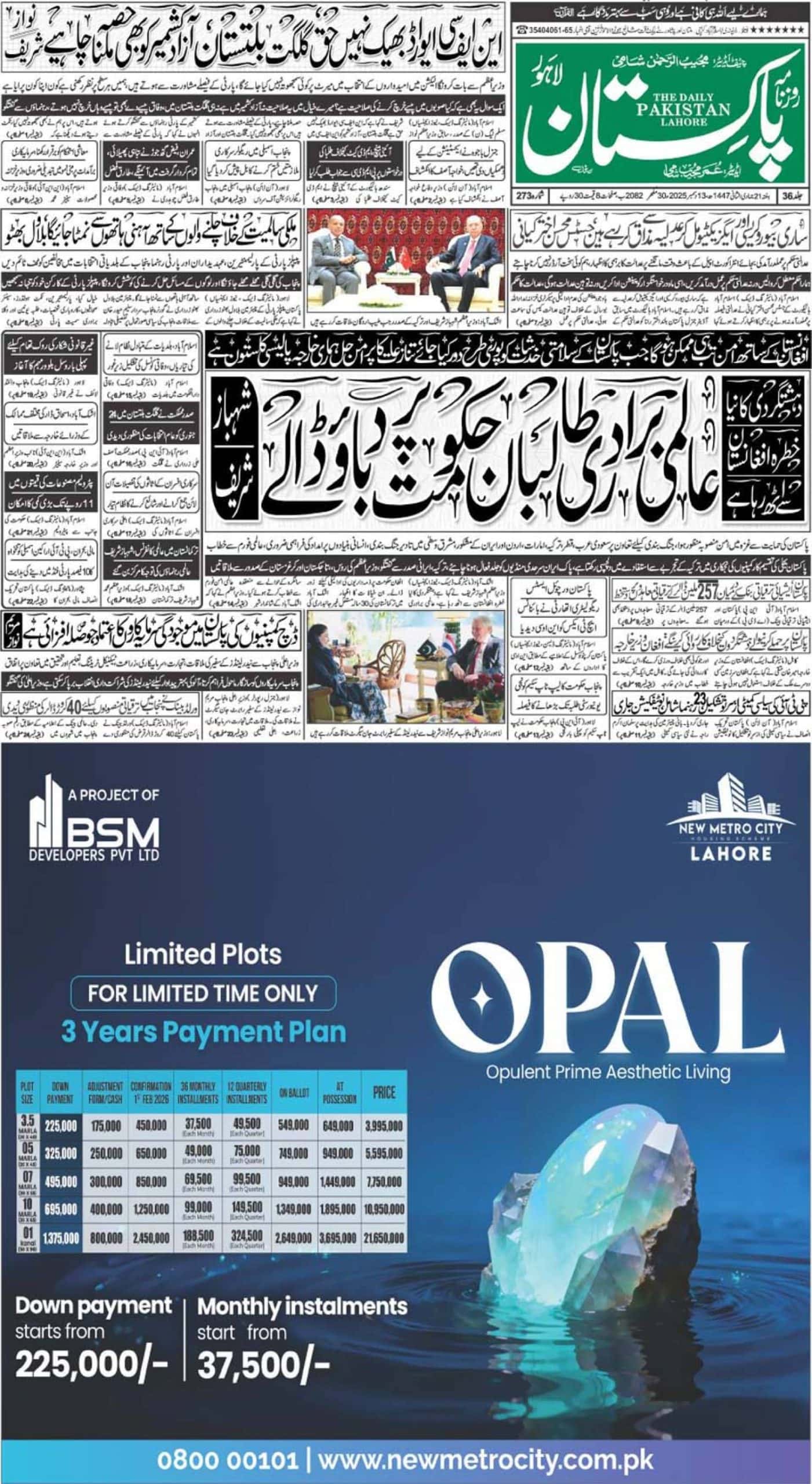ISLAMABAD – The Supreme Court of Pakistan has adjourned hearing a slew of petitions seeking a probe into Panama papers till Wednesday.
The five-member larger bench discussed the money trail regarding Sharif family investments and establishing factories in Dubai and Jeddah.
Salman Akram Raja, counsel for Hassan and Hussain Nawaz kicked off his arguments by expressing that Mian Shareef had absolute control over family business.
He claimed that Tariq Shafi did not manage the daily affairs of the Gulf Factory as he was just a witness to payment of Rs. 12 million AED to Al-Thani family for investment.
Justice Asif Khosa replied that the premier mentioned about setting up six new factories during Zulfiqar Ali Bhutto’s stint.
Justice Gulzar while throwing weight behind justice Khosa remarked that when six factories were established in Pakistan, what was the need of Gulf factory then adding that the premier did not mention about Qatari investment.
‘When did Sharif family settle in London flats’ remarked justice Gulzar.
Counsel for Hassan, Hussain Nawaz claimed that the Sharif family did not purchase London flats between 1993 to 1996 adding that Sharif family was not the owner of offshore firms for the said period as well.
‘Sharif family purchased London flats in 2006’ said Salman Akram Raja.
Salman sought the larger bench to summon Tariq Shafi as witness as he knew complete details before signing the affidavit.
Justice Khosa inquired whether the machinery for Dubai factory was purchased by Hussain Nawaz.
To this, Salman replied that new machinery was installed in Jeddah factory and the equipment for setting it up was manufactured in Dubai mills. He added that Dubai mill was shut down in 2001.
Justice Khosa observed that the premier did not refer to purchase or selling machinery in any of his statements.
Justice Aijaz Ul Ahsan remarked that the core question was the source of money for London flats as Hussain Nawaz claimed that he owned London flats due to Qatari investment.
‘Premier’s statement and Tariq Shafi’s affidavit had no information regarding Qatari investment’ remarked justice Aijaz Ul Ahsan.
Counsel for PM’s scions continued his arguments claiming that the reply submitted on November 7 enclosed information regarding Rs. 12 million AED investments of Dubai factory adding that Qatari royal family was involved in the matter.
Justice Aijaz Afzal inquired whether Rs. 12 million AED were received in form of cash or through any bank adding that every deal inked by Sharif family was through banks but the Rs. 12 million AED were received in form of cash.
To this, Salman reaffirmed that receiving money in form of cash was not surprising.
However, justice Aijaz Afzal remarked that the available documents fail to support such stance.

Salman reiterated that the apex court should summon Tariq Shafi for such questions as he could satisfy the bench.
‘Rs. 12 million AED were paid to AL-Thani family in six successive instalments for investment’ said Salman Akram Raja.
He went on and said that it was not imaginable that the hefty amount was paid using camels adding that by harnessing currency notes of higher value, the stuffed money would be equal in volume to these two books (which he was holding).
To this, Salman replied that Tariq Shafi did not reveal information regarding the mode in his affidavit.
Resuming his arguments after the break, Salman expressed that the apex court could not punish due to article 184/3 of constitution as the plaintiff failed to provide any proof.
He referred to Rehman Malik’s report regarding money laundering and claimed that Nescoll and Neilson were registered in the name of Insparkle that in turn remained linked to Qatari bank.
‘London flats also belonged to Qatari family’ said Salman Akram Raja adding that Hussain and Hassan Nawaz lived in those flats from 1993 due to family terms with Qatari family.
To this, justice Asif Khosa posed question to Salman inquiring whether he believed Rehman Malik’s report to be true.
However, Salman replied that he did not believe in that report.
During today’s hearing, prosecutor general NAB submitted details regarding non-filing of appeal against Lahore high Court’s decision.
Justice Gulzar Ahmed inquired about the number of cases for which the NAB did not file appeal.
Prosecutor General NAB replied that there were scores of such cases for which appeal was not filed before the supreme court.
The apex court adjourned the hearing till Wednesday.
During the last hearing, National Accountability Bureau (NAB) submitted details regarding the confessional statements of Ishaq Dar pertaining to money laundering charges.
According to NAB’s submitted reply, Ishaq Dar applied for pardon on April 20, 2000. NAB chairman accepted the petition the very next day.
On April 25, Ishaq Dar recorded his confessional statement before the magistrate.
Counsel for Ishaq Dar, Shahid Hamid kicked off his arguments by expressing that the petition for disqualification of Ishaq dar and intra-court appeals were dismissed.
Shahid Hamid expressed that the referee judge dismissed NAB’s petition to reinvestigate the case adding that the affidavit of approver can not be used against him.
Justice Gulzar inquired whether this decision was challenged in the apex court or not.
To this, Shahid Hamid replied that the decision was not challenged and the duration for filing appeal against the court decision also expired.
Justice Asif Khosa remarked that the referee judge had to pass judgement regarding money laundering on the basis of his opinion adding that the larger bench would question prosecutor NAB after the arguments of Shahid Hamid.
He went on and categorically observed that Ishaq Dar was no more an accused individual after the apology.
‘The confessional statement of Ishaq Dar can be used against premier Nawaz Sharif instead of Dar himself’ remarked justice Khosa.
The counsel Salman Akram Raja for Hussain and Hassan Nawaz started his arguments before the larger bench to clarify the ownership of London flats and offshore companies.
He argued that the beneficial owner of London flats was Hussain Nawaz and Nawaz Sharif had no link with said flats adding that it was well established that Dubai factory was set up in 1973.
According to Salman, Mian Sharif was well versed with steel business as he had a experience of four decades under his belt.
Salman went on and claimed that there was a conflict in the petition filed by the plaintiff adding that the court enjoyed expanded liberty regarding exercising the article 184/3 of the constitution.
‘The court should investigate the case regarding the prevalent law as the onus of proof rests with the plaintiff’ said Salman Akram Raja.
The counsel argued that Tariq Shafi submitted affidavit regarding collection of Rs. 12 million AED.
To this justice Azmat Saeed observed that the affidavit had no information regarding the payment of dues.
Salman replied that Rs. 12 million were paid in two instalments while Rs. 2 million were received in six successive instalments.
Justice Azmat Saeed posed a question to Salman inquiring about the mode of payment while quipping that whether camels were harnessed for transferring money.
Justize Aijaz said that the premier maintained that the record was available regarding the money trail.
Salman expressed that he was not shifting his burden on to anyone adding that businesses around the world use cash for their operation and it should not be misinterpreted.
To this, justice Azmat Saeed replied that no one was left to whom you can transfer your burden.
Salman reiterated that payment to Qatari family was in form of cash, however he was not aware how the money was recovered. He expressed that he was representative for Hassan and Hussain Nawaz and so he should be inquired regarding the concerned individuals.

